第9章
All Nations endeavour to get the Exchange as much as they can on their side. The Exchange from Holland to England is 12 or 15 per cent, to Scotland 30 per cent, to France 40 or 50, sometimes more; Yet Dutch Goods sell in these Countries, the Merchant has his Profit the same as when Exchange was lower, the Consumer pays more for them. English Cloth is sold at Paris from 18 to 20 Livres the French Ell, when the Lued'ore is at 12 Livres, from 20 to 23, when the Lued'ore is at 14Livres: Because the Exchange to England is dearer, in Proportion as the French Money is rais'd.
Most Goods sent from Scotland are such as Forreigners won't want, tho they payed 10 or 20 per cent more for them. We have an Example of this in the Wooll. During the Prohibition, Wooll sold in Holland and France for double the first Cost, now it has fallen to 30 or 40 per cent Profit. Prices are given for Goods, according to their first Cost, Charges, and usual Profit; Where Prohibitions are, the Hazard of exporting contrair to Law is valued. Wooll is of less value now in Holland than in time of Peace, because the vent of their Woollen Manufacture is less; But tho Wooll were als valuable in Holland as before, and tho a Dutch Manufacturer would give 200 lib. for Wooll that cost only a 100 lib. in Scotland, rather than want it: Yet as he knows the Prohibition is taken off, and that the Scots Merchants can afford to sell cheaper; he won't buy unless he can have it at a reasonable Profit. So either the Scots Merchants bring down the Price, by underselling one another; or the Dutch Merchant Commissions it himself. If a Duty were put on such Goods whose Value abroad would bear it, the Merchant would gain the same, 'tis the Forreigner pays the Duty.
Besides. lowering the Money may not lower the Prices Abroad. For, as when Money was rais'd, Goods may have rose in proportion, or have been made worse; So as a 100 lib. after the Money is lower'd will have 33 Crowns and 1/6 more Silver in it, than a 100 lib. had before; So a greater Quantity of Goods may be bought with a 100 lib. than before, or the Goods may be made better: Especially the Linen-Cloth, since the Material would be imported for less. But, allowing that upon the lowereing the Money, Goods sold in Scotland as before, and were made no better; And allowing that on Third or more of the Goods exported, could not be rais'd in their Prices Abroad; Because Forreigners might be ser'd cheaper with the same kind of goods from other places, or might supply the use of them with goods of another kind; or might consume less of them; yet, that ought not to hinder such a Regulation of the Money and Exchange; for a Draw-back might be given upon the Export of such Goods, whose prices Abroad were not great enough to yield a reasonable Profit.
But least such an Alteration in the Exchange, or undervaluing Forraign Money, should lessen the Export of Goods: It may not be advisable, unless a Fund were given, out of which Draw-backs might be payed to encourage Export, and an Addition be made to the Money, whereby the People may be set to Work. For without some Addition to the Money, tis not to be suppos'd next years Export can be equal to the last: It will lessen as Money has lessen'd; a part of the People then imploy'd being now idle; nor for want of Inclination to work, or for want of Imployers, but for want of Money to imploy them with.